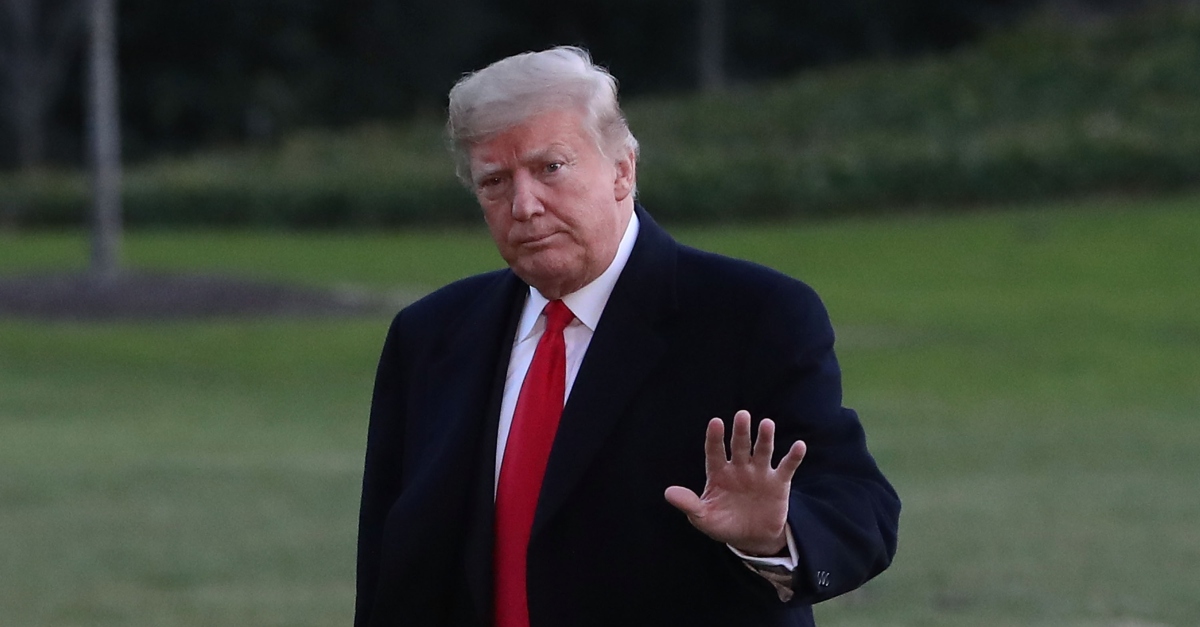
The Trump Administration announced Monday that a new rule would go into effect almost immediately that could have sweeping consequences for refugees. Here’s what you need to know.
BREAKING: The Trump admin. announced a new rule that would block people from requesting asylum if they passed through another country first. It will affect most Central American asylum seekers, including children who are traveling alone. pic.twitter.com/miQAnKUV19
— AJ+ (@ajplus) July 15, 2019
Who are “asylum seekers” or “refugees”?
These terms can be used interchangeably. Refugees and asylum seekers are individuals who have been forced to leave their home countries because of persecution, war, or violence. They are not “undocumented immigrants” or “illegal border-crossers.” These are people specifically fleeing religious, ethnic, tribal, or political persecution – not people who would simply prefer to live in the United States. Refugees are vetted and documented at the border, and undergo an intense process before being relocated into the United States.
Before President Trump was elected, what was the situation with refugees?
The United Nations High Commissioner for Refugees (“UNHCR”) registers millions of people seeking asylum in the United States from all around the world. UNHCR assists these asylum-seekers during the process of relocation, and helps resettle people in their home countries when the threats have diminished. The process from UNHCR registration to settling in the United States is a long one; it takes eighteen to twenty-four months to complete extensive background checks, and everyone from the State Department, to the FBI to DOD to DHS is involved. Every applicant is interviewed by a DHS officer, and fingerprint and background data is extensively examined. The background checks for refugees coming from Syria are especially stringent, and only half of the applicants are actually approved for asylum. The refugees granted asylum in the U.S. have been overwhelmingly women, children, and elderly individuals.
What’s happened since Trump came on the scene?
A lot. In early 2017, Trump issued an Executive Order directing federal agencies to begin the “extreme vetting” of refugees. That EO suspended entry of all refugees to the United States for 120 days, barred Syrian refugees indefinitely, and blocked entry into the United States for 90 days for citizens of Iran, Iraq, Libya, Somalia, Sudan, Syria and Yemen. Individuals holding green cards from those countries were also prohibited from re-entering the United States. Litigation ensued, and the timeline expired, but the issue of U.S. policy on refugees remains a defining issue for Donald Trump and his presidency.
What’s going on now?
Trump just put a new rule into place, and it will likely end asylum protections for most Central Americans.
President Trump is essentially doing unilaterally what he’s been trying to get Congress to do for months which is make it more difficult for people to seek asylum in the United States and dramatically limit who is eligible. New rule below. pic.twitter.com/shMfWAOxAg
— Yamiche Alcindor (@Yamiche) July 15, 2019
It reads, in relevant part:
[A]n alien who enters or attempts to enter the United States across the southern border after failing to apply for protection in a third country outside the alien’s country of citizenship, nationality, or last lawful habitual residence through which the alien transited en route to the United States is ineligible for asylum.
Under this new rule, asylum seekers who pass through another country first will be ineligible for asylum at the U.S. southern border. It’ll go into effect on Tuesday, and applies to both adults and children.
Here’s the thing, though. What constitutes a “safe country” is not so clear. Under current law, a country is deemed safe “pursuant to a bilateral or multilateral agreement.” There’s no objective or neutral basis for making the determination of which countries are “safe” for purposes of closing out refugees. Currently, the U.S. only has such an agreement with Canada – but similar agreements with Guatemala, Panama, Colombia, and Mexico have been contemplated if not pressured by the Trump Administration. President Trump and Guatemalan President Jimmy Morales had been scheduled to meet Monday in Washington to address this issue, but their meeting was canceled.
Of course, an official designation that nations across our Southern border are “safe” could be thwarted in part by President Trump’s own statements to the contrary:
The Coyotes and Drug Cartels are in total control of the Mexico side of the Southern Border. They have labs nearby where they make drugs to sell into the U.S. Mexico, one of the most dangerous country’s in the world, must eradicate this problem now. Also, stop the MARCH to U.S.
— Donald J. Trump (@realDonaldTrump) April 30, 2019
What’s going to happen next?
Almost certainly, litigation. Secondarily, Trump’s 2020 opponents will continue to bring this and other immigration issues into the political spotlight.
They separated families. Locked children in cages. Raided homes. Then, they decided no deterrence policy was cruel enough—so now, they’re banning asylum seekers from finding safety in our country. Their cruelty won’t stop until we stand up and stop them. https://t.co/YXFQgDMrMG
— Beto O’Rourke (@BetoORourke) July 15, 2019
[Image via Mark Wilson/Getty Images]
Have a tip we should know? [email protected]